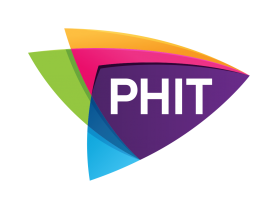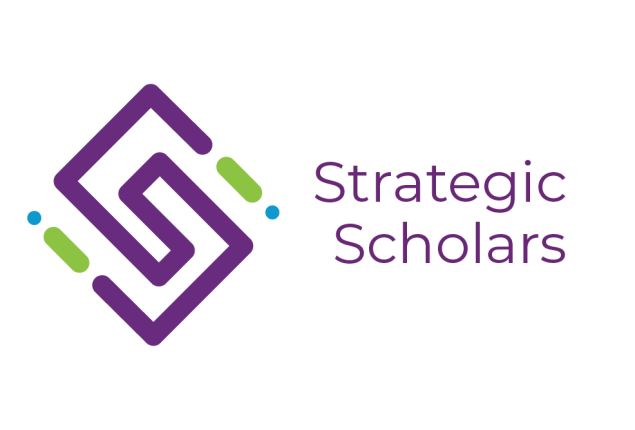At a glance
CDC's National Center for State, Tribal, Local, and Territorial Public Health Infrastructure and Workforce (Public Health Infrastructure Center), in collaboration with several national nonprofit partners, offers a comprehensive portfolio of workforce development activities focused on performance improvement in public health. These activities include trainings, conferences, learning communities, and programs designed to enhance the knowledge and skills of public health professionals.

Public Health Improvement Training (PHIT)

Public Health Infrastructure Center, in partnership with the National Network of Public Health Institutes (NNPHI), hosts the annual Public Health Improvement Training (PHIT). PHIT offers interactive learning and skill-building sessions, with content designed for early, mid-career, and senior-level public health professionals. This one-of-a-kind opportunity provides hands-on learning experiences to health department leadership and performance improvement professionals. Attendees gain critical knowledge in performance improvement concepts, listed below, through small workshops with national experts and peers, purposeful networking, and skill-building sessions with interactive activities.
- Quality improvement
- Performance management
- Partnership development
- Workforce development
- Accreditation and reaccreditation
- Community health assessment and improvement
- Systems thinking
- Social determinants of health
PHIT has traditionally been held in person and often reaches audiences of approximately 300 attendees. Since 2021, PHIT has been held virtually which increased access significantly; reaching 672 registrants in 2021 and 783 registrants in 2022. In 2023, there were two separate PHIT events, an in-person Mini PHIT with 169 registrants and a virtual PHIT with over 1,000 registrants.
To learn more about who attends PHIT, read Evaluation of the 2022 PHIT: An Overview of State, Tribal, Local, and Territorial Registrants.
Testimonials:
"Having almost 800 participants in an all-virtual format seems to have made PHIT highly accessible, and the more we share and collaborate, the stronger our public health system will be." —2022 PHIT attendee
"Thank you for a wonderful experience! This was my first PHIT conference and I was impressed by the virtual format and dynamic session leaders!" —2021 PHIT attendee
"The perfect niche conference for public health practitioners leading organization-wide efforts." —2019 PHIT attendee
Public Health Performance Improvement Network (phPIN)
The Public Health Performance Improvement Network (phPIN) is a peer learning network that offers a forum for performance improvement professionals in public health to interact, access timely resources, and share emerging practices on topics related to performance improvement.
Participants of phPIN have access to an active listserv, a peer-led webinar series, and an online portal for networking and resource exchange. As of 2024, phPIN reaches approximately 1,400 performance improvement professionals in state, tribal, local, and territorial agencies across the country.
phPIN also hosts Project ECHO (Extension for Community Healthcare Outcomes), a series of interactive, case-based, virtual learning sessions that provide the opportunity for attendees to gain knowledge and skills from experts in performance improvement. Participants of Project ECHO learn emerging practices and practical applications for their field. Attendance is limited to enhance the participant experience and allow for deeper engagement and knowledge-sharing throughout the series.
Past Project ECHO sessions:
- Utilizing Racial Equity Impact Assessments for Performance Improvement (2022)
- Operationalizing Anti-Racism, Social Justice, and Health Equity Principles Through Performance Improvement (Offered in 2021 and 2022)
- Workforce Resilience During COVID-19 (2020)
- Successfully Conducting Virtual Community Health Assessments/Community Health Improvement Plans During COVID-19 (2020)
To learn more about participation in phPIN, visit Public Health Performance Improvement (phPIN).
Strategic Scholars Program

The Strategic Scholars Program, developed and implemented by Public Health Infrastructure Center and NNPHI, uses a community of practice cohort model and multiple learning modalities to build governmental public health workforce capacity in strategic skill areas. The Strategic Skills, established through an initiative of the de Beaumont Foundation and updated to align with Core Competencies for Public Health Professionals, provide a framework for important cross-cutting skills in public health.
The Strategic Skills are relevant to public health professionals from all disciplines and experience levels. They are designed to help the workforce manage change and resources, communicate effectively, create action from data, engage with the communities served, influence policy, form cross-sector partnerships, and strive for justice, equity, diversity, and inclusion.
The Strategic Scholars Program model allows participants to work with their peers from across the country to explore new ideas and concepts around the specific strategic skill selected for each cohort. Strategic Scholars Program participants complete self-paced training related to the strategic skill, participate in live learning sessions led by an expert coach, and have access to individualized coaching as they complete a team-based skill application project.
Past cohorts and teams:
- Resource Management Cohort—2024, 6 teams
- Resource Management Cohort—2023, 5 teams
- Resource Management Cohort—2022, 7 teams
- Change Management Cohort—2021, 7 teams
- Resource Management Cohort—Fall 2020, 10 teams
- Resource Management Cohort—Spring 2020, 10 teams
- Systems Thinking Cohort—2019, 5 teams
Visit Strategic Scholars Program to learn more.
